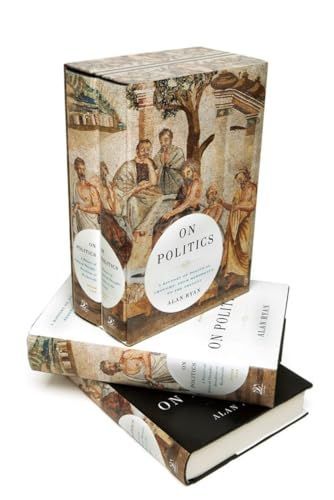
On Politics
This is a book about the answers that historians, philosophers, theologians, practising politicians and would-be revolutionaries have given to one question:how should human beings best govern themselves? That question raises innumerable others: can we manage our own affairs at all? Should we even try? Many people in the past have thought that only some individuals were either able or entitled to practise self-government: Greeks, but not Persians; men, but not women; the better-off minority, but not the poor majority. Others have thought that few of us have any desire to govern ourselves, and that government is inevitably a matter of a competent elite managing an acquiescent mass. Then, what do we mean by 'freedom' today, and is it the same freedom that people enjoyed, or strove for, in the past? Almost every modern government claims to be democratic; but is democracy really the best way of organising our political life? For almost two thousand years, educated opinion said not. Today, educated opinion says yes. In the modern west, do we actually live in democracies? They certainly do not resemble what the Athenians fought and died to preserve. It seems that there may be less agreement than we might think about how human beings can best govern themselves. In this extraordinary book, more that thirty years in the making, Alan Ryan engages with the great thinkers of the past to explain their ideas with a lucidity which makes the book compelling reading. While acknowledging how much separates us from our intellectual forebears, he reminds us how often the ideas of long-dead or distant thinkers are more alive, and speak to us more vividly and immediately, than those of our contemporaries. At a time when we sometimes feel that the problems of the globe will simply overwhelm our ability to control them, he provides a peerless guide to the ways in which the problems of politics have been thought about by the greatest minds of our civilization.